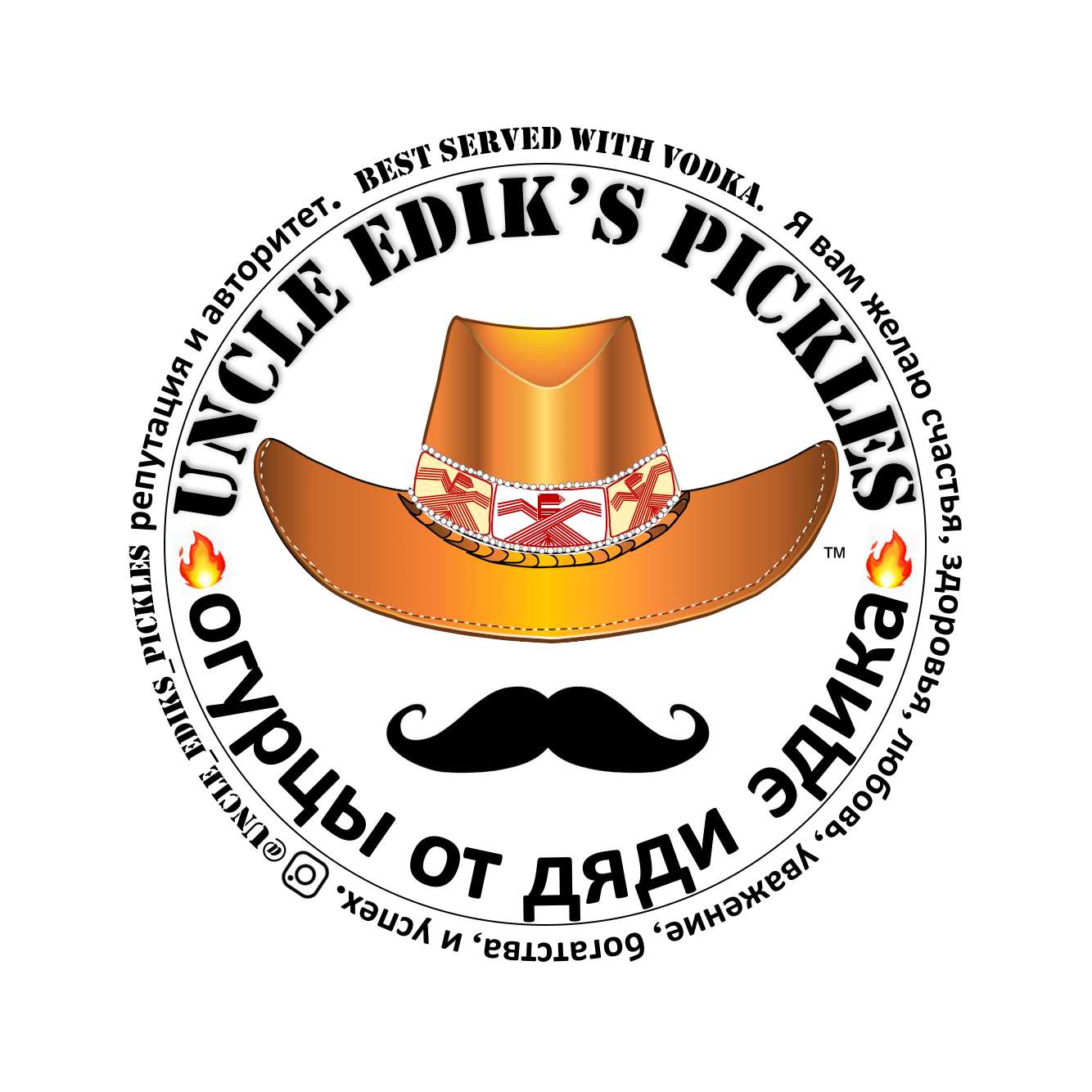
Translations
For the Culture
Throughout Uncle Edik’s posts and stories, you will find many unusual words used to describe the pickle experience.
Below we list a few definitions that can help you understand what exactly is being said across different languages including Russian and Bukharian.
Agurets aka Огурец -> Russian word for “cucumber”. The plural form, agurtsi, means cucumbers but somehow it also means pickles. Russians do not have a separate word for pickles (disrespect!).
Bukharian aka бухарский -> A central asian jewish group of people once endemic to modern day Uzbekistan and Tadjikistan that mass migrated to Israel and the United States after the fall of the Soviet Union. Their native language, Bukhori, is a Tajik dialect of the Persian language. Bukharians are known to have an incredibly diverse cuisine and rich culture that emphasizes family, religion, and marriage asap. Education? Para Zhinitsa, Yeeeh! Uncle Edik is 75% Bukharian by blood and his love for food is a direct consequence of belonging to this culture.
Lyubov aka любоф -> Russian word for “love”. Lyubov is often used to describe the pickle juice from Uncle Edik’s Pickles. Hard to explain why, but one sip and your tastebuds will understand.
Muzhik aka мужик -> translated from Russian. Means “peasant” but is often used as slang to describe a respected man that does the right thing. It is also used to describe anyone (even a girl) who opens a jar of pickles effortlessly.
Rahmat aka рахмат -> translated from Bukharian. Means “thank you”, often used alongside a gentle tap to the forearm when someone passes you a slice of an Uncle Edik’s Pickle. But beware when using this word… if you add “kuna” to the end of it (rahmat kuna) the meaning changes to “rest in peace”.
Sabachin Zhir aka собачий жир -> translated from Russian. This literally means “dog fat” but is commonly used as a saying when opening a jar of pickles. No one knows how this saying originated, but if we were to guess,… um actually let’s not guess.
Sok aka Сок -> translated from Russian. Means “Juice” and is used to refer to the brine of the pickles. This pickle sok or pickle juice is a common delicacy in Eastern European and Central Asian countries. It is often enjoyed along side meat-heavy meals, or chasing your favorite shot of vodka (see Zakuska). The word “Sok” has a special place in every Bukharian’s memory because nearly all of them have witnessed their father walking to the fridge half-naked to drink Sok straight out of the jar.
Soyuz aka Союз -> translated from Russian. Means “Union” like the Soviet Union. It is a name that has been used for over 50 years for a class of Russian rockets that send people to space. We have given the same name to our 800oz Mega Bottle of pickles which is the size of 25 (twenty five) 32oz jars combined.
Uvazhenye aka Уважение -> translated from Russian. This means “Respect”. It is also used to describe food that has had an incredible amount of love (lyubov) and attention to detail incorporated into it.
Yomayo aka Йомайо -> translated from who knows what. This isn’t a real word but is often yelled when someone is surpised or shocked. Kind of like “Wooow” but with an extra syllable. “YOMAYO!” is often stated as a reaction to pickle juice spilling all over your car seats when you try to open a jar of Uncle Edik’s Pickles without the presence of a Muzhik.
Zakuska aka закуска -> translated from Russian. This literally translates to “snack” but is also the Russian word for chaser. Acidic food (especially pickles) are almost always used as a chaser amongst Bukharians after a shot of cold vodka. We believe Uncle Edik’s Pickles are the best Zakuska, with our Sok (pickles juice) a close second.
Zdarovi Sabaka aka здоровая собака-> translated from Russian. The literal translation is “healthy dog” and is often used as slang to describe someone or something that is huge, sometimes excessively well built. Think of the biggest guy you know that goes to the gym. Now imagine him as a jar of pickles. That’s the name of our 64oz Jar which is huge aka the “ZDAROVI (make sure you aggressively roll the “R”) SABAKA”.
